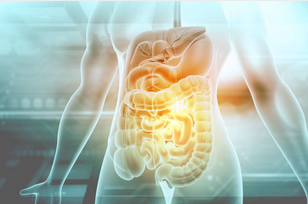
How Long Does It Take to Digest Food?
Share
Digestion is the process of breaking food down into the nutrients your body can use. It starts at your mouth and finishes at the end of the small intestine. In your stomach, the food mixes with those digestive juices, creating a watery concoction that passes into the small bowel. The small bowel’s walls absorb needed nutrients and water. The colon (large bowel) then takes what your body didn’t use and prepares to get rid of it through a bowel movement.
In general, food takes 24 to 72 hours to move through your digestive tract. The exact time depends on:
>Your body type.
>Your metabolism.
>Medications you take.
>Types of food you eat.
>Level of physical activity overall exercise fitness.
>Living a sedentary versus physically active lifestyle.
>Past surgeries you’ve endured.
>Stress level.
Food that travels significantly faster than normal results in diarrhea, and food that travels slower results in constipation.
Certain conditions can disrupt digestion and leave you with some unpleasant side effects like heartburn, gas, constipation, or diarrhea. Here are a few:
1. Acid reflux happens when the lower esophageal sphincter weakens. This allows acid to back up from your stomach into your esophagus. The main symptom is heartburn.
2. Celiac disease involves your immune system attacking and damaging your intestines when you eat gluten.
3. Constipation is fewer bowel movements than usual. When you do go, the stool is firm and hard to pass. Constipation causes symptoms like bloating and abdominal pain.
4. Inflammatory bowel disease includes Crohn’s disease and ulcerative colitis.
5. Irritable bowel syndrome causes uncomfortable symptoms such as gas, diarrhea, and constipation, but isn’t tied to cancer or other serious digestive diseases.
6. Lactose intolerance means your body lacks the enzyme needed to break down the sugar in dairy products. When you eat dairy, you get symptoms like bloating, gas, and diarrhea.
To keep food moving smoothly through your digestive system and prevent issues like diarrhea and constipation, try these tips:
- Eat more greens, fruit, and whole grains
- Limit red meat and processed foods
- Exercise daily
- Get plenty of sleep
- Manage stress
- Add probiotics to your diet (Try our probiotics here)
Source(s): Cleveland Clinic & Healthline
